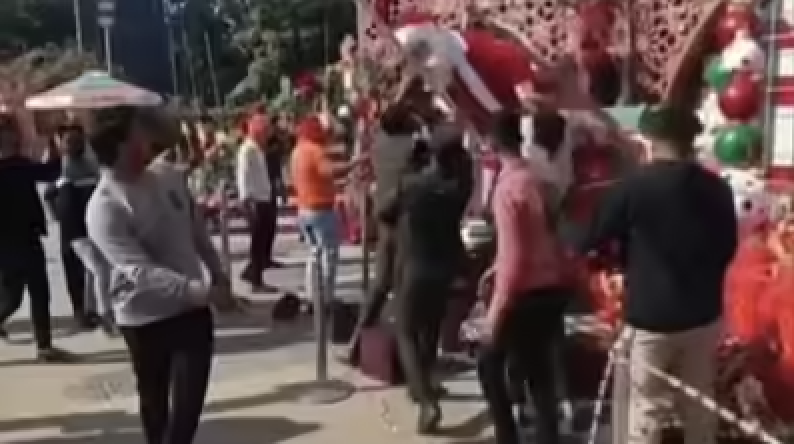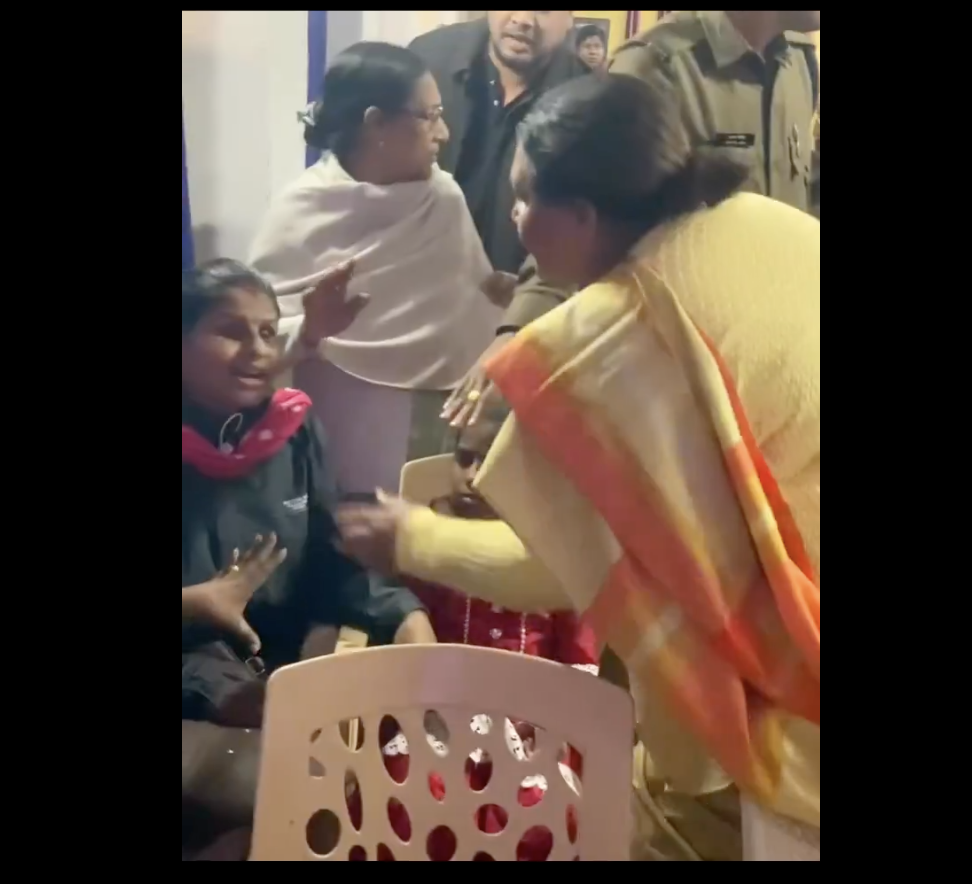
by Sandeep Pandey
Co-Written by Anandi Pandey, Lubna Sarwath and Sandeep Pandey
A common question asked by upper caste people, who form the core support of Hindutva politics, when opposing the Scheduled Caste/Scheduled Tribe (Prevention of Atrocities) Act, 1989 or the policy of reservation in educational institutions, government jobs or elected posts is why should they be held responsible for the atrocities committed by their previous generations on the weaker sections (read lower castes) of society? However, when it comes to religious structures the same people justify the campaigns to replace mosques with temples on the basis of mere hearsay which generally follow the plot that a temple was destroyed by some Muslim ruler to build a mosque. Their presumptuousness to dismantle heritage religious structures in spite of lack of conclusive proof of claims, while, on the other hand their opposition to undo the historical wrong in the matter of caste based oppression is now quite brazenly on display in the name of fundamentalist politics of Hindutva. The Dalit President Ram Nath Kovind was conspicuous by his absence during the bhumi pujan ceremony of Ram temple in Ayodhya performed by the Prime Minister last year which was also attended by Uttar Pradesh Chief Minister, a populist Hindutva leader, and the Governor.
The P.V. Narasimha Rao government came up with The Places of Worship Act in 1991 which said that the character of places of worship shall be maintained as it was on the day India became independent. The legislation was framed in the wake of then raging controversy that place of Hindu deity Ram’s birth was situated at the very place where Babri Majid stood in Ayodhya. The government made an exception for this site but for the remaining the Act said that any pending cases in the jurisdiction of any court, tribunal or other authority, shall lapse. The exception in the Act has been exploited to its fullest, The Babri Masjid was demolished on 6th December, 1992, by a mob of Hindutva fanatics, the Supreme Court ordered the building of a Ram temple at the site through an order on 9th November, 2019 and a Special court acquitted all the 32 accused in the Babri Masjid demolition case on 30th September, 2020, even though the 2019 judgment of SC had said that demolition of Masjid was violation of law.
With legal sanction to the objective of building a temple dedicated to Ram at Ayodhya having been achieved, a possible sentiment would have been the expectation of momentary peace; however the appetite for demolition of heritage masjids and creating chaos seems emboldened. True to their slogan, ‘Ayodhya is only a curtain raiser, Mathura and Kashi will follow,’ the Hindutva cadre is now busy raking up the issues at these places. A civil court in Varanasi has ordered the Archaeological Survey of India to investigate whether the Gyanvapi mosque was built after destroying any temple at that site and similarly a Mathura court has ordered ASI to conduct a radiological test to ascertain whether any Krishna idol is buried under the Jama Masjid as the petitioner believes that prison cell where Krishna was born stood at the site of Shahi Idgah. The story of Ayodhya is apparently being repeated in Kashi and Mathura with the help of judiciary.
The alacrity with which the Hindutva forces have been active post the Ayodhya judgement, and even before, is ominous and has the potential of developing into a storm much worse than what this country has witnessed in its communal history. The Vishwa Hindu Parishad President claims that they have collated a list of 30,000 mosques where counterclaims of temples existing in the yore can be made.
The politics exploiting the religious sentiments is very strange and virtually a Frankenstein monster. Somebody in the past purportedly built a temple. Somebody else is alleged to have demolished it to build a mosque in its place. Mythological figures whose existence has not been proven were supposedly born at precise sites, about which there can be no compromise. All you have to do is to rake up the controversy or start a conversation with your neighbour. It is quite unfortunate that ordinary religious people get carried away by this propaganda and start supporting this kind of politics. The objective of underlying politics is polarization of Hindu votes projecting Muslims as enemies, invaders, scheming and brutal people; the targeting of these specific sites is not random. It involves pro-active causation of loss of objectivity and reason among people by obscuring the facts that firmans donating temple lands, math lands, grants by emperors against whom they propagate as having demolished are available in multiple temples in our country. While demolitions, constructions, grants may have been done by erstwhile rulers of India from any religious identity in their power struggle, distorted form of religious hue is being given to manufacture feelings of animosity between religious groups, which is the saddest part of this saga.
What is more unfortunate is that this kind of politics removes the focus from real issues of life affecting people. The lack of country’s health care infrastructure has been clearly exposed in the wake of coronavirus crisis. Half the children in India don’t cross the Class VIII stage in education and a quarter never see the inside of a classroom, even as child trafficking is rampant. It also happens because half the children in India are malnourished and half the women are anaemic. Dalits are still made to dive into sewer lines and septic tanks without protective gear and die due to asphyxiation. The forces of capitalism and privatization continue to grab land and displace families, especially tribals, from their abodes. Kashmir has learnt to live without democracy and basic human rights and now rest of the country is following that path. Trans individuals continue to face harassment and hate crimes.
When the country’s priority should have been to buttress its health care and education systems to provide for the needs of people and focus on basic issues guaranteeing individual and societal security during the pandemic, the politics of Hindutva is pursuing electoral consolidation and its elements are busy pushing cases on Varanasi and Mathura in the courts. A ruling that upholds 1991 Act and quashes the claims of freedom of religion by demolition of existing religious structures, from the halls of justice would tilt scales towards well being of India.
This story first appeared on countercurrents.org






